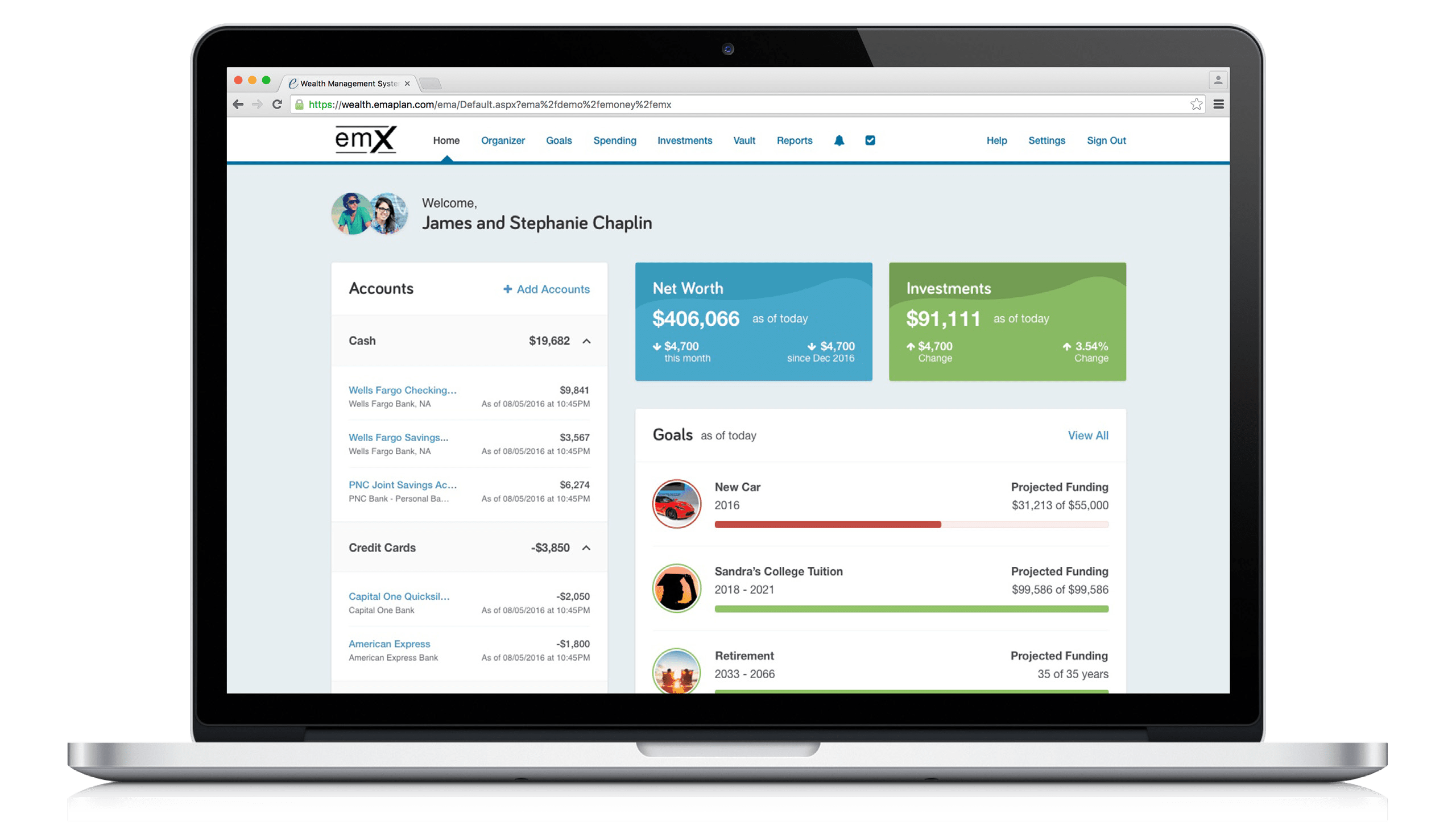The past two years have subjected us all to unprecedented levels of stress and strain, both financial and otherwise. Over half of the respondents to a recent online survey of nearly 3,000 adults by NextAdvisor felt somewhat-to-very anxious about their finances. Curiously, these responses were given in spite of recent strong stock market performance and in the midst of one of the most robust hiring environments of the past decade.
What’s going on? Sure, it’s important to understand the technical aspects of managing money. Yet many of us are so focused on the external and analytical details of wealth that we can overlook what’s even more important: understanding the role we want money to play in our lives and learning how to deal with it on a day-to-day basis so that it becomes a source of joy and contentment rather than stress.
So perhaps instead of setting ambitious numerical financial goals for yourself this coming year, consider making some modest yet highly beneficial behavioral changes to how you deal with your money. Let 2022 be the year that you focus on lowering your financial stress levels and enhancing your contentment around money.
Here are some ideas to help you achieve greater happiness in your financial life.
Be Aware of How You Feel, Not Just How Much You Have
Studies show that as income rises, so does happiness. But there’s a catch.
Once earnings reach a certain level (about $96,000 in today’s dollars, according to a 2010 study) more money brings no additional significant improvements to happiness. (Caveat: The relevant income threshold is likely to be higher in expensive locations.)
Part of the problem is that as our income rises, we increasingly compare ourselves with others. We beat ourselves up for what we lack in comparison to our friends and colleagues rather than being grateful for what we have. We feel compelled to buy the latest do-dad or stress out over FOMO.
As a result, one clear way to regain our own balance and lower stress levels is to analyze what really matters to us personally—rather than looking to others for validation. A clear idea of the life we want our own money to help us achieve is a sure-fire way to lower financial stress.
Yet if you think that’s hard to do, you’d be right. We’re all social beings and we naturally relate to and want to integrate our lives with those of others. But there are several questions that are time-tested diagnostic tools to help point us in the right direction. Ask yourself, honestly:
First: What would you do if you had all the time and money in the world?
Second: How would you live if you knew you had only 5 to 10 years left?
Finally: What would you most regret if you were to die tomorrow?
Most people, in fact, have trouble answering these questions in a truly meaningful way. Sure, we may know that we dislike our current job or would love a new car (or house, or kitchen, or vacation, etc.), but that doesn’t really answer the question of how we ideally want to live our lives. Or the question of what tradeoffs we are truly passionate about.
It can take time and effort to work out answers that are right for you. But I encourage you to try. Talking to a friend, spouse, or trusted financial advisor can certainly help. There are few things more satisfying than knowing what you truly want and having a reasonable expectation of being able to achieve it.
Save Yourself Time and Aggravation
Let’s face it: The modern financial world is complicated, time-consuming, and can be fraught with unforeseen perils. Anything you can to do simplify, save time, or leverage the trusted expertise of others can lead to increased happiness.
- For example, take stock of all your various kinds of accounts, including retirement accounts, bank accounts, and credit cards. If you have more than one of each type (perhaps two when it comes to credit cards), consider consolidating your holdings so you will have fewer websites and statements to keep track of.
- Similarly, try to use one bank account and one primary credit card to process all of your transactions. This allows you to more easily keep track of what’s coming and what’s being spent out of your household.
- Where possible, automate bill payments and put savings on autopilot. (Remember, however, to review your regular payments periodically to make sure that those expenses are still relevant.)
- For your big, ‘lumpy’ expenses (like insurance or property tax payments), set up monthly transfers calculated to ‘pay for’ each annual or semi-annual bill when it comes due. That way you don’t have to scurry around trying to find big chunks of cash when you least expect it.
- If you receive equity compensation (RSUs, stock options, etc.), be sure to ask your tax advisor to calculate your estimated tax bill for each time you vest or exercise shares. And make sure you pay the estimated tax before you decide what you want to do with the balance of the funds. Mandatory withholding is likely to be insufficient, and you don’t want to find yourself with a huge additional tax bill at tax time.
Minimize Financial Conflict
Many couples can relieve stress by agreeing beforehand how they are going to manage their money: jointly, separately, or something in-between. Many different models can work, as long as both partners agree.
One widespread approach is for working spouses each to contribute an agreed upon amount to household spending and savings, then reserve the balance of their earnings in an account over which they have unfettered control – either to spend or save as they wish. The goal is to allow each to spend up to an agreed-upon limit without criticism from the other.
But other models are also possible. Some couples essentially share all financial decisions, while still others have created an absolute division of financial ownership and responsibility. The key to deciding which model is right for you is to talk honestly with your spouse about what you both feel is fair, and then implement a system that allows for simple oversight and control.
Families can also be the source of other financial stresses. Many late-career couples struggle to provide their grown children with financial support. In the extreme, they can jeopardize their own retirement by doing so. And in some extended family circles it can become an expectation for the “successful” member of the family to finance the needs and wishes of others. If one of these circumstances applies to you, you may want to seek out a financial counselor to talk about it.
Prepare For the Unexpected
As much planning as we may do, the future always brings the unexpected. Yet at a high level, we can also prepare for that.
A healthy emergency fund is a key element in everyone’s financial life. The goal of an emergency fund is always availability and liquidity, rather than return. Cash is the ultimate flexible tool, and it covers a multitude of needs. Having a go-to stash of cash literally lets you sleep better when markets are misbehaving or other parts of your financial life are in disarray.
In addition, be sure to periodically reassess how much risk you want to take on in your portfolio. It can be very seductive to sign up for an aggressive investment program after a period of strong returns like the one we’ve recently experienced. But you may not want to do that. Think about how you felt in March of 2020, when stock markets around the world were down 30% – 40%. Are you okay with experiencing that again? If not, go ahead and dial down your risk.
And try not to check your investment account balances more frequently than once a month or quarterly. That lets you tune out much of the noise that markets throw your way – thereby avoiding all the stress that can come from random stock market ups and downs. Remember: You don’t control markets, so don’t try. Hold a portfolio that is designed to weather different kinds of economic environments, and then get on with the rest of your life.
By contrast, do address risks that you can do something about. Buy or update your insurance if need be. And take care of your health, including your mental health. Be grateful for what you have; forgive yourself for mistakes. Remind yourself of what you’ve already accomplished, such as a paying off credit cards, or a starting a down payment fund for a house, or simply contributing regularly to your 401(k) plan. Keep a list and read through it when you’re tempted to get discouraged. Building wealth is a marathon, not a sprint.
And remember: You don’t have to have it all figured out. It’s fine to take small steps in the right direction. It’s also smart to ask for help when you need or simply want it. After all, how many of us fix our own cars or would perform even a minor operation on ourselves? Yet so many people tell themselves that they “should” understand this or that about their finances. No so. The smart thing to do is to leverage the expertise and knowledge of others where possible.
Wishing you a happy and healthy 2022!
Image by Sushi Illustrations from Shutterstock



